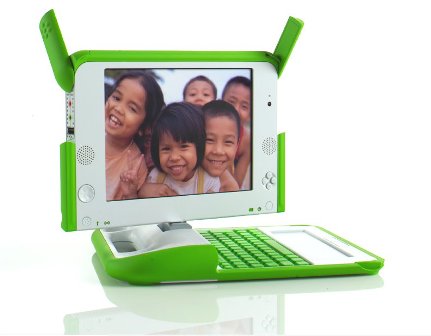First One Laptop Per Child PCs ship next week

Brazil is to receive the first 50 notebooks developed by the One Laptop Per Child (OLPC) project . The trimmed-down 2B1 notebooks feature a 500MHz processor, a low-end screen and run on the Linux operating system.
The notebooks are due to arrive in Brazil mid-November and will be rolled out for use in schools around the country early next year. A further shipment of 1,000 machines is expected to be sent in January 2007.
Nicholas Negroponte, chairman of the OLPC, said the first 50 devices will go to researchers in various Brazilian institutions, who will familiarise themselves with the systems in order to develop regional applications.
The estimated price for the 2B1 is $140 (£74). Negroponte added that the cost of producting the notebooks would fall to $100 (£53) when a minimum of five million devices was on order.
Quanta Computer , the largest contract notebook manufacturer in the world, had previously estimated it would begin mass production of the low-cost devices in the second quarter of next year.
The Taiwanese company expects to ship between 5 and 10 million of the notebooks next year. It stated that orders to Argentina, Libya, Nigeria and Thailand, as well as Brazil, have already been confirmed.
The OLPC initiative is aimed at ensuring school children in developing countries keep up with their peers in developed nations by giving them access to notebook computers so they can access the internet wirelessly.
Sign up for breaking news, reviews, opinion, top tech deals, and more.
The $100 notebook concept has also prompted companies, including Intel , to start creating lower-cost notebooks for developing countries. Anna Lagerkvist
Tech.co.uk was the former name of TechRadar.com. Its staff were at the forefront of the digital publishing revolution, and spearheaded the move to bring consumer technology journalism to its natural home – online. Many of the current TechRadar staff started life a Tech.co.uk staff writer, covering everything from the emerging smartphone market to the evolving market of personal computers. Think of it as the building blocks of the TechRadar you love today.